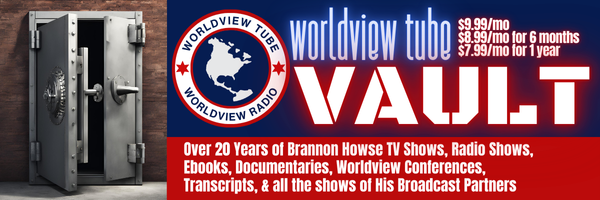Crosstalk: April 11, 2018
Tom DeWeese is the president of American Policy Center. He's one of the nation's leading advocates of individual liberty, free enterprise, private property rights, personal privacy, back-to-basics education, American sovereignty, independence and protecting our Constitutionally guaranteed rights.
Tom began by defining the term, 'sustainable'. He explained that the word first came up in 1987 in a report called, 'Our Common Future' issued by the United Nations Commission on Environment and Development. 'Sustainable', as it pertains to development, was determined to be development that meets the needs of the present without compromising the ability of future generations to meet their own needs.
When used in the Agenda 21 document in 1992, it was called a comprehensive blueprint for reorganizing human society. Now they're putting such plans in place, for example, to preserve our natural resources for future generations. However, we're not seeing things being used properly. Instead, we're seeing them being locked away. So what sustainable development has come to mean is actually sacrifice and learning to live on less.
So that brings up the question that Tom asked. If we're preserving our natural resources for future generations and the government is controlling everything involved in the process, what's going to happen that will allow them to tell us we can now use those natural resources? After all, there will always be future generations that we have to preserve such things for.
What is Agenda 21 and what is that connected to? The United Nations had a series of habitat meetings. Eventually they all came together into one document called Agenda 21 (Agenda for the 21st Century) introduced in 1992 at the Earth Summit in Rio de Janeiro. This was not a treaty that had to be ratified by Congress. It's what's known as a 'soft law policy'. This means it's merely a suggestion.
The American Planning Association put forth a newsletter in 1994 tying their association not only to Agenda 21 as a comprehensive blueprint for sustainable development, but also tying it to Al Gore's 'Earth in the Balance' and noted organizations that were coming together to implement these programs.
Why have they started denying this? Tom believes it's because his organization put the spotlight on it which caused people to attend planning meetings and question the implementation of Agenda 21. The response people would receive was that Agenda 21 is an innocuous 20 year old document that has no enforcement capability.
As Jim noted, things have been updated and invigorated so now it's known as 'The 2030 Agenda'. Tom believes it's all about redistribution of wealth, social engineering/equity/justice with the environment being the excuse for the implementation of it all.


































